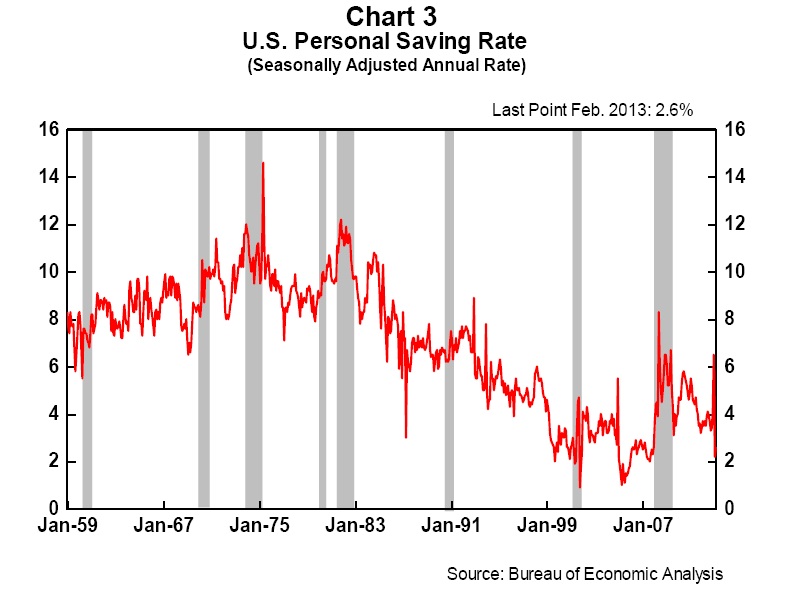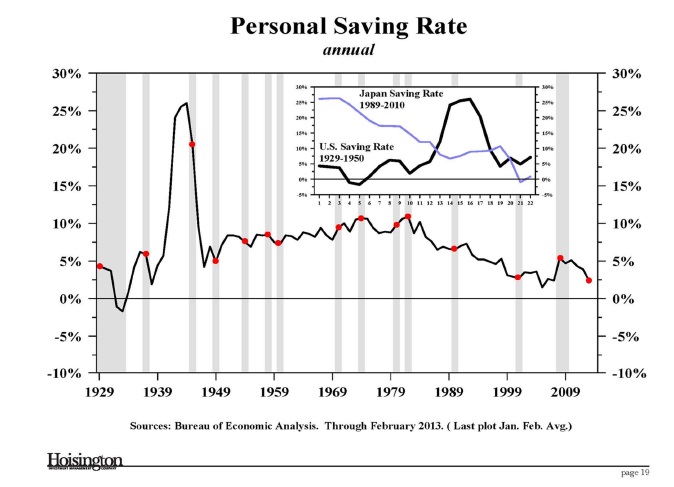
giofranchi
Member-
Posts
5,510 -
Joined
-
Last visited
Content Type
Profiles
Forums
Events
Everything posted by giofranchi
-
Much like FFH, right? Both Mr. Watsa and Mr. Einhorn think we are living through a once in a 100 years period fraught with economic perils and difficulties… So, they both are behaving very conservatively… They are not reaching for yield and are leaving a lot of money on the table… This doesn’t mean they have become all of a sudden stupid! If their fears do not materialize, we must be content with a 5% to 10% for two or three years more, then I don’t see why growth shouldn’t resume at a satisfactory rate. Vice versa, if their fears do materialize, they will outperform almost anybody else. All considered, I like the proposition above. To wait is hard, no doubt about it. But the only other proposition I like is LRE’s: a business that will make a lot of money no matter what happens around it… The problem is, imo, LRE is almost unique. giofranchi
-
Thank you Jay! I understand point 1) and 2), but I am not sure if I agree with point 3): I think investing in bonds today is far more dangerous than investing in a long/short equity strategy… why would you invest the float in bonds, if you run a higher risk of a permanent loss of capital than in a long/short equity portfolio? Yields might still resume their downtrend, but right now even Mr. Shilling acknowledges that you invest in bonds for capital appreciation, not for yield. And that's much closer to "macro investing" than even Mr. Einhorn is doing these days! ;) giofranchi
-
GBLB BB - Groupe Bruxelles Lambert (PARG SW - Pargesa Holdings)
giofranchi replied to WhoIsWarren's topic in Investment Ideas
Gio, Have you looked at Power Corp (POW)? POW is an owner-operated company with a major part of its portfolio in wealth management and insurance: http://www.powercorporation.com/media/upload/presentations/IR-presentation-June-2011-eng_1.pdf I've just recently started looking at the company, but so far POW seems like a buy-and-forget stock. I didn't find a POW thread on this board, but it's discussed in many threads. Hi hellsten, of course I tried to research Power Corporation of Canada. But, to tell the truth, I have found it very hard to put together all the pieces… when I tried, it was even difficult to put together a reliable track record… I might be wrong, but, if I remember well, they are big in life insurance, and I generally don’t like life insurance. Anyway, it is sure I quitted my research too soon. So, if you would start a thread on POW, I will follow it with much interest! :) giofranchi -
Hi Jay, not being worried about the fees, I would like to know instead which were the other reasons that prompted you to sell out of GLRE. Thank you! :) giofranchi
-
GBLB BB - Groupe Bruxelles Lambert (PARG SW - Pargesa Holdings)
giofranchi replied to WhoIsWarren's topic in Investment Ideas
Hi WhoIsWarren, I have owned Pargesa for a while. But I tend to think about Pargesa the same way I think about Exor: a very good trading opportunity, if purchased at a large enough discount to NAV, but I wouldn’t own it as a long term investment. A long term investment imo is “a great capital allocator with the right means to leverage his/her abilities”. Insurance float might be the most obvious example of “the right mean to leverage his/her abilities”. But also to become actively involved in the companies targeted as investments provides a clear advantage, that levers the capital allocator’s abilities. To own one or more businesses, which require very low maintenance capital expenditures, and therefore provide the capital allocator with a stream of predictable fcf, is another example of lever I look for. And there might be others. Pargesa, imo, though run by a good and competent capital allocator, lacks those means to lever his abilities. So, I might consider it as a trading opportunity (truth be told, I trade very little!), but I won’t consider it for a long term investment. Because I almost never invest in my 10th best idea. :) giofranchi -
Well, I guess the Netflix short thesis depends on its share price, right? As far as its business model is concerned, people like Mr. Ergen and Mr. Malone have expressed no doubts about its many strengths… and as far as management is concerned, don’t forget IEP looks for undervaluation caused by bad management… So, if they have overpaid for Netflix, it will turn out to be a poor investment, otherwise Mr. Brett Icahn might be ultimately proven right. Time will tell! :) giofranchi
-
Thank you, bargainman! Very kind of you! I guess the image in attachment goes a long way explaining why I keep holding an investment in GLRE: Earned Premium = 50% of capital and Invested Assets = 175% of capital is VERY LOW leverage, if compared to almost any other insurance and reinsurance company that I know of (LRE excluded, of course!). Yet, if they just manage a CR of 100%, while Mr. Einhorn achieves a return of 10% annual after fees, BVPS will compound at 18%. And you shouldn’t forget that Mr. Einhorn has returned 19.4% annualized since May 1996, net of fees and expenses. If you can buy near BVPS, it seems to me there is a huge margin of safety here. :) giofranchi
-
Hi bargainman, first of all IEP was founded in 1987, so it is not three decades old yet. It was founded as American Real Estate Partners and for the first 13 years was basically just involved in real estate deals. Then in 2000, IEP began to expand its business beyond its traditional real estate activities to fully embrace its activist strategy. IEP stock has increased 1,085% from January 1, 2000, representing an annualized return of 20.2%. So I don’t think it would be meaningful to compare IEP with BRK, LUK, or L during its whole 26 years of existence: for the first half of that period of time IEP was a completely different business than it is now, and a very different business than BRK, LUK, or L have always been. Just to give you an idea of the changes IEP went through, today only 3% of its assets are in real estate… As far as succession is concerned, Carl Icahn’s son, Brett Icahn, has been working with and learning from his father for 11 years now, and at 34 he is still very young and will surely take the helm when Carl Ichan is gone. No assurance here he will be as good as his father, but Brett has already proven himself a very good investor, doubling the first $300 million he was put in charge of in a matter of a few years. His abilities were so convincing that Carl now wants him to oversee $3 billion. Not bad at all for someone so young! :) giofranchi
-
Well, of course that's up to you! I was only trying to be helpful and answer your question about how much of GLRE Mr. Einhorn owns. :) giofranchi
-
Hi bargainman, please take a look at the file in attachment. :) giofranchi what-glre-is-worth-to-einhorn.pdf
-
Here is how IEP has performed relative to BRK, LUK, and L since 2000. This board is full of very shrewd investors: is there someone who was so shrewd as to invest with Mr. Icahn in 2000? ;) giofranchi
-
Yesterday I started rereading (actually, re-listening to) "King Icahn - The Biography of a Renegade Capitalist". Great book! :) giofranchi 1993-King-Icahn.pdf
-
June 2013 Investor Presentation: giofranchi Investor_Presentation_06.13.pdf
-
If you want to stay on the investment track, something I do during periods like the last few weeks, is I'll spend more time reading books that I need to catch up on This. If I'm not reading ideas, then I'm reading books. I never read books, even in periods of “can’t find anything that is undervalued (and low risk)”… Because I always listen to audiobooks, even in periods of “too many ideas, not enough capital”… And I listen to them in hours of the day I couldn’t be working or researching ideas anyway: while driving, while walking, while at the gym, etc. While at the office, I never read books: instead, I always read about my investments, or eventually about new ideas, otherwise I work on the businesses that I control. giofranchi
-
I try to work hard on the businesses that I control, and try to make them generate as much cash as possible. The larger the cash they generate during these periods of “can’t find anything that is undervalued (and low risk)”, the more dry powder I will have to take advantage of any market correction. :) giofranchi
-
Uncertain Times giofranchi Daily+6.19.13.pdf
-
I have done almost the same: got out completely of Third Point, and reduced all other holdings. I have kept my basket of shorts and increased cash. FFH remains at 30%, while LRE is up to 15%, and I will gladly take it to 20% on further price weakness. FFH + LRE = 64.5% of my long portfolio. :) giofranchi
-
It will be interesting to see what LRE's investment returns vs other insurers will be at the end of Q2. Their low duration portfolio and their swaptions may help them make their usual, small quarterly investing return, despite the potential for MTM portfolio losses that some insurers may experience as interest rates have risen recently, and equity markets have given up most of the Q2 gains. :) Both positive news! I had increased my firm’s investment in LRE to 15% of total assets just the day before AM Best upgraded LRE’s Issuer Credit Rating. :) giofranchi
-
--Charles Gave ;D ;D giofranchi
-
Value by George: Brookfield June 2013 Update. http://www.valuebygeorge.com/2013/06/21/brookfield-bam-bpy-bip-bep-june-update/ giofranchi
-
Thank you for posting this video, Joel! I hadn't seen it yet, and I will watch it with much pleasure. :) giofranchi
-
Well, to that I can only answer: :) giofranchi
-
Hi guys, I don’t follow BBRY closely, so I am just asking: anyone knows why BBRY doesn’t support the Audible application anymore?! It is really annoying and frankly disappointing… giofranchi
-
Well, of course you are right! But I don’t want to make it a moral issue… too difficult and multi-faceted! My point of view is much easier: you don’t want to see a generally high stock market, after two generations have squandered their savings and lived beyond their means… just because anyway human ingenuity will save us all in the end… Instead, you want to see a generally high stock market as the result of hard working, thrift behavior, and disciplined channeling of substantial savings into productive investments. giofranchi
-
Hi shalab! The two images in attachment are from Mr. Shilling and Mr. Hunt. Look at what happened between 1939 and 1945: a personal saving rate that increased from 2% to 25%. Massive productive investments followed, that laid the foundations for the post WWII economic boom and secular bull market in equities. But, you might argue, history can be interpreted in many different ways… maybe it is so… Therefore, anyone must reach his own conclusions: if you were to save and invest just 2.6% of your yearly income, do you think you’d still be able to achieve a satisfactory CAGR for your net worth? As far as my net worth, or my firm’s net worth, are concerned, the answer is NO! giofranchi



